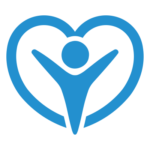If they have a chronic condition, do they know how to make the shift to an adult doctor? Does your young adult know how to find a new doctor or fill a prescription? Can your young adult manage their mental health? What can we do as caregivers to help make this transition to adult healthcare easier? What tools are available to parents, caregivers, and to our young adults? This section of Transition University will help families navigate this important topic. What if my young adult still needs support when they turn 18? What are my options? Once a child turns 18, they are considered an adult, and healthcare providers are not required to communicate with parents. In addition, you may not be allowed access to your young adult’s medical records. Based on your young adult’s needs you may want to consider full guardianship or limited guardianship for health care, medical power of attorney, or an Advance Health Care Directive.

Healthy Living
Mental Health, Advance Health Care Directive, Medical Power of Attorney, HIPAA Release, Transition to Adult Health Care, Care Notebook
It's never too early or too late to work towards being the healthiest you.
Does your young adult know what to do in a health emergency?

Does your young adult know what to do in a health emergency?
Medical Power of Attorney:
Can also include a HIPAA release to access the principal’s private health care information and communicate with the principal’s healthcare providers unless the power of attorney specifically restricts that authority. If outlined, the power of attorney can also be used to make medical decisions for the principal if they are unable to do so.
Utah’s Advance Healthcare Directive Outlines circumstances where another person can make medical decisions for an individual, and includes written instructions on the individual’s desires, should they be unable to make decisions. If outlined, the directive can also include a HIPAA release, gives permission for the agent to talk to medical professionals and make decisions about the principal’s care. A living will can also be included in the directive.
Utah Declaration for Mental Health Treatments A declaration that allows, or disallows, mental health treatment. It also gives the young adult the opportunity to appoint a person as their attorney-in-fact (the person named in a power of attorney to act on their behalf) to make mental health treatment decisions for them if they become incapable.
Living Will A legal document that lays out preferences regarding health care, such as refusal or acceptance of medical treatment, in addition to the optional selection of a chosen agent or decision maker. A living will is also included with an Advance Health Care Directive or it can be a separate document. See the red section of this booklet for additional information on wills and trusts.
Got Transition is the federally funded national resource center on health care transition (HCT). Its aim is to improve the transition from pediatric to adult health care through the use of evidence-driven strategies for health care professionals, youth, young adults, and their families. This online resource and booklet assist young adults in transitioning from pediatric to adult healthcare.
Got Transition Family Toolkit was developed for families to use during pediatric-to-adult healthcare transition and includes resources for both parents/caregivers and youth/young adults. These tools can be used to better prepare youth and families for the transition to adult care. This toolkit can be downloaded for free on Got Transition’s website at GotTransition.org.
Care Notebook is an organizing tool for youth with disabilities or chronic health illnesses. You can learn to use a transition notebook to keep track of important information about your young adult’s health care and the services they need as they move into independence. They may get information and paperwork from many sources. A transition notebook helps you/them organize the most important information in a central place. A transition notebook makes it easier for you/them to find and share key information with others whom they choose to be part of their care team; such as a family, doctor, or other providers.
Health Living and Charting the LifeCourse
Provider healthcare Transition Toolkit for Pediatric Patients Graduating to Adult Healthcare
Understanding Health Insurance
Learning About Health Insurance
Understanding Marketplace Insurance
Mental Health Resources
Utah Crisis Line 800‐273‐TALK
The Utah Crisis Line provides compassionate support. We give referrals to anyone in need of mental health or emotional wellbeing services. Whatever age you are, you can call for help 24 hours a day, 7 days a week, 365 days a year. There is no cost. We have interpreters in more than 150 languages to help. This 800 number recognizes the area code of caller ID and transfers Utah area code numbers to the Utah team. If you are calling from a non‐Utah area code, but you want a Utah response, call the local number 801‐587‐3000.
Warm Line 833‐SPEAKUT (833‐773‐2588)
Talk to someone who’s been there before and understands. Sometimes you may need a supporter as you heal and recover from your own personal struggles. If you need to talk with someone, you can call the Utah Warm Line for that support. The Utah Warm Line is free for all callers. When you call the Utah Warm Line, you will speak with a certified peer support specialist. Our peer support specialists have gone through specialized training. They have also lived through experiences like yours—mental illness and substance misuse that is disrupting your happiness. Call for support today!
Utah’s Mental Health Agency – OSUMH
Office of Substance Use and Mental Health
Take Care Utah
A Utah Health Policy Project initiative, is a network of nonprofit organizations focused on helping people with health insurance. It consists of about 50 enrollment specialists all across Utah. All services are provided free of charge. For any additional questions about Take Care Utah, contact Utah Health Policy Project (UHPP).
Link: https://takecareutah.org/
SafeUT App
Download the SafeUT and crisis prevention 24/7/365 to students, parents, educators and others. You can chat with a licensed counselor for support or submit a confidential tip right from your smartphone, or call 833‐372‐3388 to talk about what is on your mind.
Stabilization & Mobile Response (1-833-SAFE-FAM)
For families with children/youth ages 0‐20 experiencing mental health challenges. Over the phone support and problem solving, mobile response services, and in‐home stabilization services to help your family stabilize and self‐manage future challenges. Free, family guided, and youth driven.
Live On! Campaign
Statewide effort to prevent suicide by promoting education, providing resources, and changing our culture around suicide and mental health. Together we can get through, reach out, lift up, look ahead, and Live On.
Emotional Health Relief Line 833-442-2211
Intermountain Healthcare is offering a free emotional relief hotline for anyone who needs mental health support related to COVID19. Caregivers are available 10AM to 10PM, 7 days a week.
Healthy Minds Utah – Take a Screening
If you are concerned about yourself or someone you love, take a few minutes to complete an anonymous self-assessment.
myStrength
A free, online tool to help you live your best life. You’ll find help for stress, anxiety, chronic pain and more. It’s safe, secure and personalized – just for you. Track your health, enjoy activities, and become inspired. myStrength has recently added resources and supports surrounding COVID‐19 and the behavioral health needs that you may have during this time.
National Alliance on Mental Illness (NAMI)
American Foundation on Suicide Prevention Utah Chapter
Utah Strong Recovery 385‐386‐2289 (call or text), Email utahstrong@utah.gov If you or someone you know is experiencing stress, anxiety or depression because of COVID19, talk with a crisis counselor 7 days a week, 7AM to 7PM. All information is confidential and free of charge.
Crisis and Suicide Prevention, Utah
Caring Connections
The University of Utah, College of Nursing offers a variety of grief support groups throughout the year. Each support group is designed to help you cope with a different kind of loss and grief, including suicide. The groups are eight weeks in length and are facilitated by expert clinicians in the fields of social work, nursing, counseling, and psychology.
For additional resources in the human services/social services area, please call 2‐1‐1 or see https://211utah.org/
Medicaid
Medicaid provides health coverage to millions of Americans, including eligible low-income adults, children, pregnant women, elderly adults and people with disabilities. Medicaid is administered by individual states, according to federal requirements. The program is funded jointly by states and the federal government. *People who are not US citizens can only get Medicaid to pay for a life-threatening medical emergency.
How do I know if my young adult is eligible for Medicaid?
To be eligible for Medicaid, your young adult must meet a program type and meet the rules for Utah residency, income, and citizenship. If you are unsure if your child qualifies for Medicaid, you should apply for them. They might be eligible depending on your household income, family size, age, disability, and other factors. They must be a United States citizen, a U.S. national, or have a satisfactory immigration status to be eligible for full benefits. Visit HealthCare.gov to take a quick screening to help you determine if your child is eligible for Medicaid/CHIP or other health insurance options. To download an application and apply in person or by mail, use this link
Medicaid Screening
Utah Medicaid
What is the process to apply for Medicaid?
Apply for SSI first; the SSI application process streamlines the Medicaid application process in Utah. You may apply for Medicaid for your young adult in person, by mail, or online. When the application is received, the Department of Workforce Services (DWS) will contact you by mail or phone. DWS may need more information to determine if your child is eligible for a medical program. DWS will also notify you of what proofs you will be required to provide, like a birth certificate.
Utah Medicaid Waivers:
A Medicaid waiver is a type of Medicaid program designed to serve people with varying disabilities. In Utah the Medicaid waivers are administered by the Utah Department of Health and Human Services. Each waiver is slightly different in terms of the services that they offer and they are designed to serve a specific population of people. Waivers can vary based on the level of care, type of disability, age, and the level of skilled nursing required by the individual. To enroll your child and join the waiting list, use the link. It can take many years to come off of the DSPD waitlist. Even though your child may be on the waiting list for years, get them on as soon as possible so they can take advantage of any one-time funding or benefits that may become available. In addition, if your young adult has been denied SSI or Medicaid in the past, it is still worthwhile to apply for a waiver. Waivers don’t necessarily look at SSI or Medicaid qualification guidelines. To Enroll Waiver options
DSPD or The Division of Services for People with Disabilities serves children and adults who have intellectual disabilities, physical disabilities, brain injuries, and autism. Apply for DSPD. There is a waiting list. Individuals come off the waiting list based on available funding and the needs of the individual. If you are on the waitlist, you may qualify for one-time funding while you wait. The length of the waitlist also shows state leadership the great need for additional funding for our state. The Division of Services for People with Disabilities is part of the Utah Department of Health and Human Services and offers the following waivers to those who qualify.
